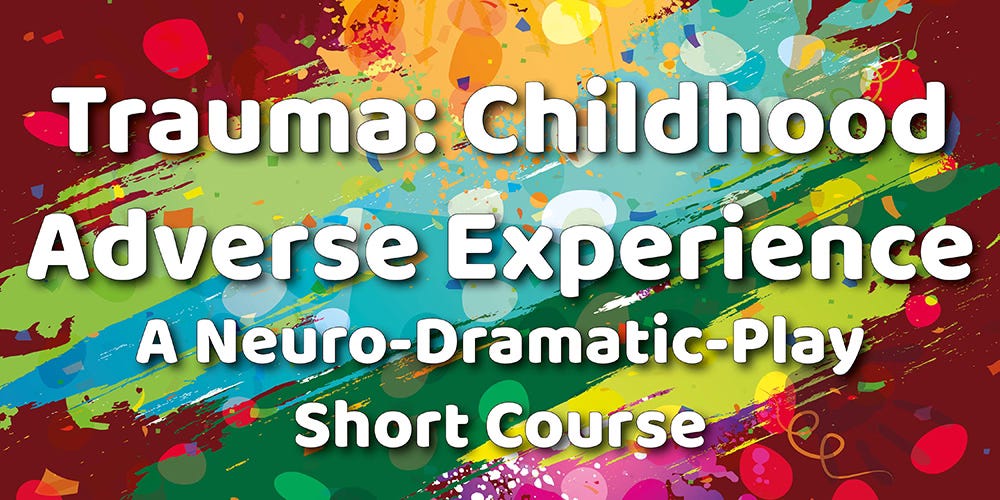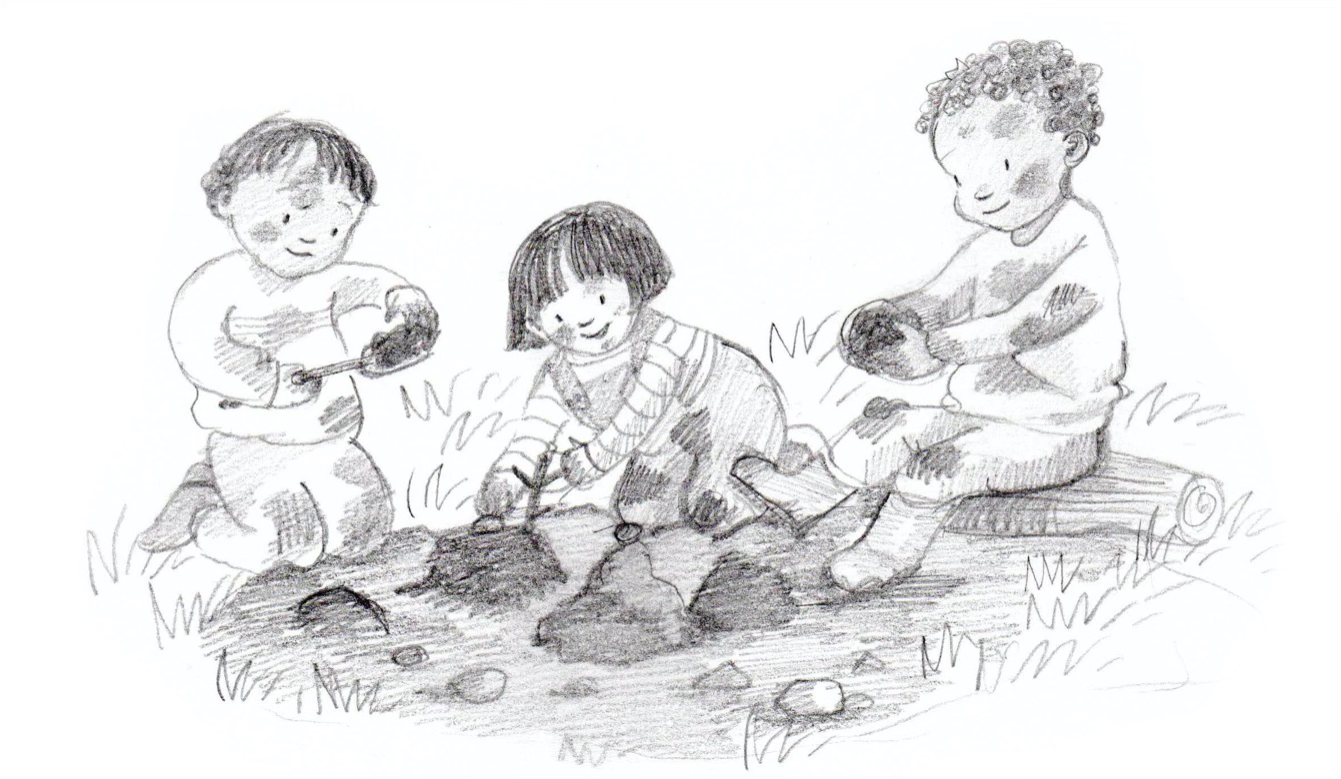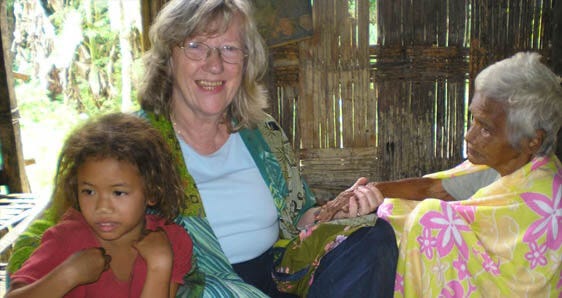It was nice to get home from Athens to some daffodils, narcissus, and forsythia struggling to hold its blooms up, and the next day a small magnolia suddenly opened several dozen blooms; ‘For the rain it raineth every day’ (Twelfth Night 5.i.). It is extraordinary how much detail Shakespeare includes about the seasons and weather in his plays. And Titania’s speech in A Midsummer Night’s Dream (2.i) is surely a statement on climate-change, some 400 years ago.
I find that keeping a Shakespeare play in my pocket, to read when waiting around – especially at airports and surgeries – is very nurturing. Tho’ people sometimes ask, ‘Are you an actor?’ You need to say quickly, ‘No, I’m a teacher.’
This week’s free newsletter includes a feature on one of the cornerstones of Neuro-Dramatic-Play: Messy Play. Our paid features includes new techniques, new stories, time to talk and share, free webinars, consultations and discussion time. Thank you hugely to those of you who are paid members (otherwise known as The Nest!). It makes a big difference! If you aren’t a paid member then please do consider it. If you are a paid subscriber then don’t forget that you can join our next webinar for free. See the details immediately below…
The next in our serious of NDP Short Course Webinars is Trauma: Childhood Adverse Experience. Trauma is the effect of an extreme experience on an individual or group, such as a school class. It may be caused by a single event (Acute Trauma), persistent events, (Chronic Trauma), or different events (Complex Trauma). Every trauma has different impacts on children, who often respond with the flight, fight, freeze + responses. The impact of traumas on children cannot be dismissed or ignored - children don’t just ‘get over it’ - as the recent impact of the Covid crisis has shown. This webinar looks at the impact of trauma on children and offers simple interventions for teachers and therapists. Do join us if you can - only £25 for a 90-minute webinar and it makes an excellent CPD opportunity!
With Love
Dr Sue
March 2024
Main Article:
Mess, and More Mess: the ‘O dear’ of parenting!
As we know, Messy Play is one of the cornerstones of Neuro-Dramatic-Play. We imagine it occurs before birth as the infant is in warm slimy water, and then passes through a very messy time in the birth process. New-borns are very slippery and slimy and in the olden days would be washed and weighed. Now, more enlightened doctors and midwives, place the baby directly onto the mother’s chest. Skin to skin contact is continued and the baby is able to sense their mother’s heartbeat.
The practice of vaginal seeding, after a C Section delivery, whereby a sterile gauze swab is inserted into the vagina and then wiped on the baby’s body and face, especially the eyes and mouth, continues to be challenged. The research evidence on the benefits is very small, and the American Association of Obstetrics and Gynaecology is opposed to the practice unless it forms part of supervised clinical research. It is suggested that the following are much safer options for a baby to benefit from the mother’s hormones:
1. Breast-feeding for at least 6 months.
2. Skin-to-skin contact, especially around the breast area.
3. Not bathing the infant for at least 12 hours.
4. Taking care with anti-biotics unless they are deemed essential.
It is important that women weigh up the research and advice before making such an important decision.
Nevertheless, we are still considering Messy Play and its predecessor, Water Play, which is very important to the developing child. Unless a child has had a negative experience with water, such as near drowning (being held under water to make it breathe), they usually seek out water, both outdoors and indoors.
Messy Play often starts with adding stuff to water and creating mud pies, sand-castles, lotions and magic potions. Messy Play supports and develops a child’s curiosity – what happens if… and he or she is finding out about colours, shapes, transformation and change.
We can remind ourselves that messy play occurs throughout life: putting on sun cream or moisturiser on ourselves and others; cooking many dishes that need mixing by hand; changing the oil and other tasks on our cars; peeling oranges; creating pottery; gardening and planting flowers and vegetables…. The list is endless.
So why do we struggle with Messy Play with our children? Certainly, there is a wish for them to be clean and tidy and there are many sayings coming from different influences:
Clean as a whistle
If you don’t smell good then you don’t look good
Ship-shape and Bristol fashion
Cleanliness is next to godliness
Clean living
We should wash our destiny the way we wash our body
Don’t trash your future. Keep your surroundings clean.
And many, many more!
What often goes with being messy is being smelly – a child who looks messy is assumed not to smell sweet. And just notice the plethora of TV adverts about things smelling good:
People competing on beds as to the sweetest smelling sheets
People made to look silly because they wanted fresh flowers to smell nice
Food being appreciated because it smells good: remember the Bisto adverts?
False notions of being ‘nose-blind’ meaning your house smells bad!
Promotion of chemical air fresheners as if they are ‘natural’.
The tragic thing about air-fresheners is that many people, especially children, are allergic to them. There is a popular one that causes me to stream from my eyes and nose the moment I enter a house where one is plugged in. And there is concern regarding asthma and eczema that is on the increase in children.
So, let’s try and be relaxed about Messy Play and see it as an important part of child development; whether it is mixing mud pies, flour and water, wet sand on the beach or sand tray. We can make our own slime; for example, try mixing together: corn starch, shaving cream and white glue.
Happy Mixing! Happy Mess!
With love
Dr Sue
And finally, our bedtime story from Cornwall…
The Mermaid of Zennor
The village of Zennor is set in a beautiful landscape on the rugged Cornish coast. Four hundred years ago a choir boy from the local church disappeared, never to be seen again.
Mathew Trewhella, who was the son of the churchwarden, was in the church choir and it was soon realised that he had a remarkable voice. People would come from far away just to hear him sing. His voice continued to be beautiful.
It so happened that a mermaid was sitting on the rocks in Pendour Cove, which was situated just below Zennor, and she could hear the singing as it drifted down from the church. She was enchanted and would now return to her rock every week to listen to his singing. She would also sing and it was a hauntingly beautiful sound.
One Sunday she plucked up the courage to go up to Zennor village and she went to the church to hear Mathew sing. When they saw each other, they fell instantly in love, and she beckoned him to follow her down to the cove.
They were last seen swimming together towards the ocean. Mathew was never seen, or heard, again.
Sue Jennings
(my great thanks to Jennifer Robinson for introducing me to this story)
If you prefer to listen to these stories, they will shortly be available on YouTube ‘NDP Storytime with Sue Jennings’.
Bits & Pieces
I’m off to Malaysia for ‘NDP in the Jungle’ – I will report back. And there are webinars on this life-changing experience – see Eventbrite.
The Self-Guided NDP Diploma course will be re-launched next week - fully revised - which means you can once study for the NDP Diploma in your own time with opportunity for live tutorials.
How about writing in to the Newsletter – comments, questions and, as we said earlier, for support?
Judi Dench says: ‘Be kind, be curious, be playful. And keep a sense of humour.’
Keep reading with a 7-day free trial
Subscribe to Sue Jennings Presents to keep reading this post and get 7 days of free access to the full post archives.










